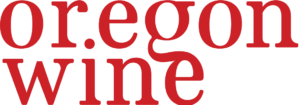Whole Cluster Fermentation Intent, Execution, Expression and Analytics
The inclusion of whole grape clusters in the red wine fermenter is a concept as old as wine itself. In the modern age, this technique is used with stylistic intent and is implemented with great specificity. Winemakers choose not only the whole cluster percentage, but also dictate how those clusters are treated, loaded, and layered into the tank. Carbonic maceration can be favored or discouraged and cluster disruption can be initiated immediately with foot treading or nearly avoided with very gentle cap management.
How these choices influence the sensory experience of the finished wine is still a matter of discussion and debate. Here, we will explore the chemical and sensory effects of whole cluster fermentation in a research context as well as a winemaking context. We will hear from Dr. Federico Casassa about the measurable effects of whole cluster fermentation on wine chemistry and phenolic profile. Then, our winemaking panelists will share their whole cluster philosophies and techniques. Finally, we will see how their intent carries into the glass with an integrated tasting and will open the floor to questions and a brief discussion.
View the Session Recording
Speaker Bios
Tom’s parents, Paul and Eileen, established Cristom in 1992 with a vision to grow world class Pinot noir. In 2012, Tom became the majority owner overseeing all aspects of vineyard management and winemaking, and leads Cristom with a 100-year vision of the future. With a winegrowing philosophy based on soil and plant health and nutrition, he has led the transition to organic farming and incorporates Biodynamic principles and methods across the estate.

Leave a comment